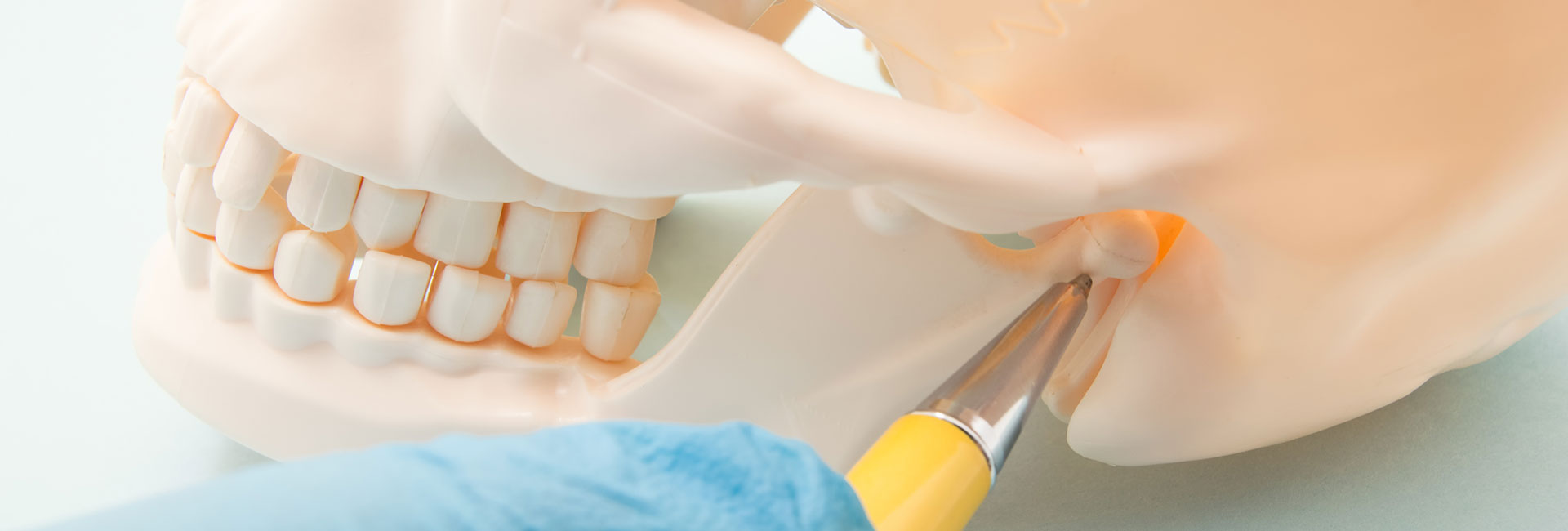Get relief from headaches, neck and back pain, and other TMJ symptoms at the dentist’s office!
Chronic headaches. Tinnitus. Neck and back pain. Did you know that many of these conditions may be rooted in the mouth, more specifically, the jaw joints? It’s true! In fact, you have come to the right place for relief from these and other conditions. Los Alamitos Dental Care supports the oral and overall health of individuals across Orange County, California. Our six dentists are skilled at working with multi-disciplinary teams to pinpoint and manage disorders of dysfunction of the temporomandibular joint (TMJ).
About TMJ problems and treatment
Treatment for disordered TMJs is as potentially varied as the causes of this collection of problems. The TM joints are on both sides of the face. They attach to the skull. When functioning healthily, the joints behave as “hinges.” They slide comfortably and efficiently back and forth to support a range of movements. When these joints do not operate “normally,” patients may experience problems opening and closing their mouths. They may have difficulty chewing food or experience pain when eating.
Furthermore, the pain and functional difficulties associated with the TMJs can transcend the mouth. Other symptoms range from persistent migraines to radiating facial, jaw, neck, shoulder, and back pain. Patients may express concern about the frequency and severity of earaches, tinnitus (“ringing in the ears”), and other problems such as dizziness. TMJDs may be rooted in any behavior or condition that stresses the jaw joints and their interconnected muscles, nerves, and tissues. To reduce the frequency and severity of TMJD symptoms, our team must get to the root of the problem. Several factors may be contributing to your symptoms, as well. These contributors or potential causes include:
- Daytime or nocturnal bruxism (chronic teeth grinding and clenching of the jaws)
- Stress and muscle tension
- Arthritis
- Facial injuries and trauma
- A “bad bite” or other occlusal abnormalities
Treatment, too, comes in many different forms. For instance, if you brux or grind your teeth, we may recommend a special custom oral appliance. The appliance is worn to cushion the extreme blow or force placed on the jaws and jaw joints when habitually grinding the teeth. In turn, less stress is placed on the TMJs and associated structures. These lightweight appliances also protect the teeth and dental work from damage caused by TMJDs. A tiny NTI-tss device may be appropriate for daytime bruxers to wear, and it also prevents the back teeth in the upper and lower jaws from touching when you bite down. The lack of contact can ease symptoms such as migraines.
Therapy is often multi-faceted; our dentists may also recommend special physical exercises to strengthen the muscles or relaxation techniques to ease muscle tension. Steps as seemingly simple as replacing old or worn dental restorations can make a big difference in your “bite,” too, which brings balance to the whole system that is your mouth, face, and jaws.
Call (562) 539-0011 for gentle, non-invasive, affordable, and easy relief from the many symptoms of TMJ dysfunction.



